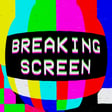
Creators of Stan series Watching You on adaptations, writing tips, and crafting a propulsive thriller for TV
We're joined on Breaking Screen by Alexei Mizin and Ryan van Dijk, the creators, writers and script producers of Stan’s original six-part series Watching You, which is based on the J.P. Pomare novel 'The Last Guests’ and is produced by Lingo Pictures in association with ITV Studios. The series stars Aisha Dee as Lina, who, after her affair is captured by hidden cameras, sets out to unmask an insidious voyeur that threatens to destroy her life. All episodes are available to stream now.
Throughout the podcast, Alexei and Ryan talk about the positives of being a writing duo, how they navigate conflict if it does arise, the process of adapting a novel for the screen, writing advice and much more.
Alexei and Ryan’s writing partnership began over a decade ago while completing a Master of Film and Television at the Victorian College of the Arts. Together they have won the prestigious Monte Miller Award at the AWGIE Awards, partnered with The Fleming Agency and sold original IP to Apple, been attached to a sci-fi series for Animal Logic and Truant, secured a development deal with the AMC Network, developed projects for Apple TV+ and Disney, are part of the writing team for upcoming Apple series The Dispatcher, and authored all six episodes of Watching You.
